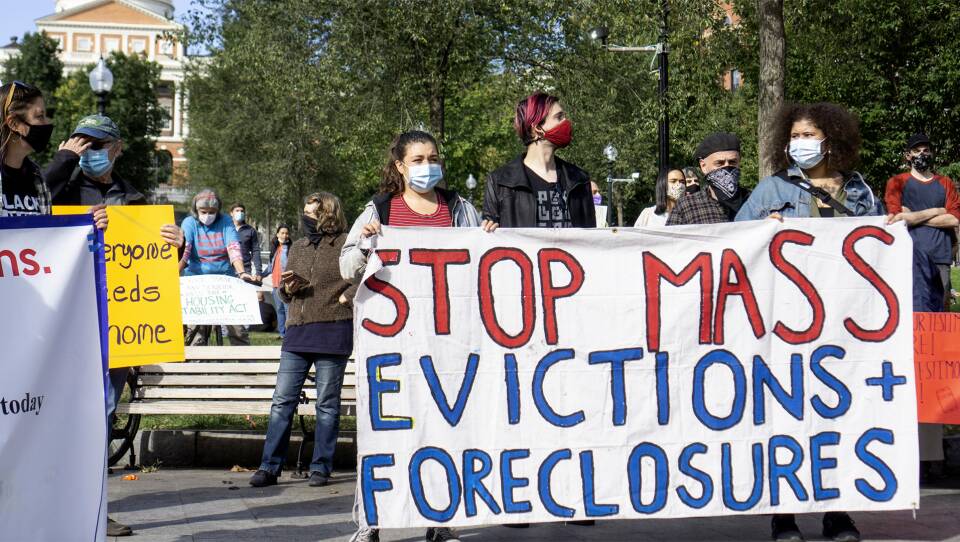A new report from the group Homes For All Massachusetts finds that, after the state's eviction moratorium ended in October 2020, communities of color were hit harder by new eviction filings than white residents.
Between Oct. 18, 2020 and Oct. 30, 2021, 43 percent of all Massachusetts eviction filings occurred in neighborhoods where most residents identify as people of color, even though those neighborhoods comprise just 32 percent of the state's rental-housing stock, according to an analysis by Eric Robsky Huntley, a lecturer in MIT's Department of Urban Science and Planning.
Huntley also found that there were nearly twice as many eviction filings per renter in predominantly nonwhite communities as in predominantly white ones — and, in certain municipalities, the disparity was even greater. In Norwood, for example, the eviction-filing rate in mostly nonwhite neighborhoods was more than six times higher than the rate in mostly white areas. In Weymouth, it was more than five times higher. And in Lawrence, it was nearly five times as high.
"This is a statewide problem," Huntley said in a Zoom conference call Tuesday. "This is not confined to a single municipality."
Neighborhoods with a higher share of households headed by single mothers also experienced higher eviction-filing rates, according to Huntley's analysis.
The report casts these discrepancies as the result of preexisting inequities exacerbated by the pandemic — noting, for example, that "Black and Brown folks were more likely to work in service and other industries where working from home was not possible, contributing to both loss of income and higher hospitalization rates."
Speaking through an interpreter, Lawrence resident Esmirna Cruz shared her own experience with eviction, saying that she and her three children — ages 18, 14 and 7 — have now been homeless for about four months.
"My older one, in these last months, she was working after school — she had to start working to help me with expenses," Cruz said. "But I asked her to please stop working because, she was falling behind with her schooling.
"When I found an apartment recently, two bedrooms, they told me I had to at least make $4,000 a month," she added. "I'm a single mom!"
The findings could stoke further debate at the State House about how to increase access to, and production of, affordable housing.
Andrea Park, an attorney at the Massachusetts Law Reform Institute, suggested the report could shape the rental-assistance portion of a supplemental budget currently being crafted by the Massachusetts Legislature.
In addition, Park noted, "there are pieces of legislation currently pending ... things like giving local control for rent stabilization, for transfer fees, for giving tenants the opportunity to purchase their home."
In Boston, for example, Mayor Michelle Wu wants to implement a new tax on higher-end property sales in order to build more affordable units, but needs approval from the Legislature and the governor. Gov. Charlie Baker has voiced skepticism about that proposal, suggesting Boston's access to COVID-relief funds makes the proposed change unnecessary.







